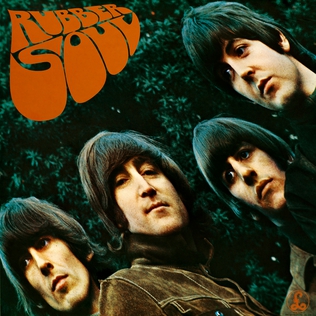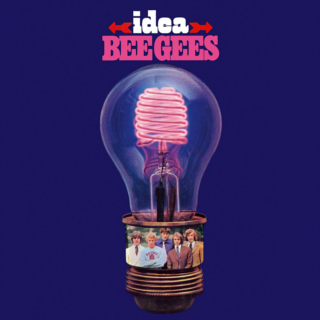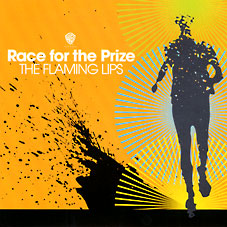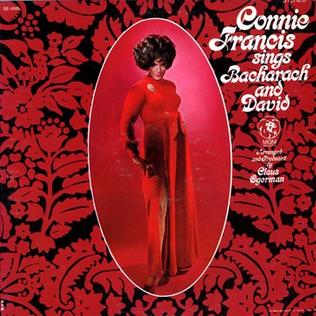
Rubber Soul is the sixth studio album by the English rock band the Beatles. It was released on 3 December 1965 in the United Kingdom on EMI's Parlophone label, accompanied by the non-album double A-side single "Day Tripper" / "We Can Work It Out". The original North American release, issued by Capitol Records, contains ten of the fourteen songs and two tracks withheld from the band's Help! album. Rubber Soul was described as an important artistic achievement by the band, meeting a highly favourable critical response and topping sales charts in Britain and the United States for several weeks.

"Get Back" is a song recorded by the British rock band the Beatles and Billy Preston, and written by Paul McCartney though credited to the Lennon–McCartney partnership. It was originally released as a single on 11 April 1969 and credited to "The Beatles with Billy Preston". The song is one of the few examples of John Lennon featuring prominently as lead guitarist. The album version of this song contains a different mix that features a studio chat between Paul McCartney and John Lennon at the beginning which lasts for 20 seconds before the song begins, also omitting the coda featured in the single version, and with a final dialog taken from the Beatles' rooftop concert. This version became the closing track of Let It Be (1970), which was released just after the group split up. The single version was later issued on the compilation albums 1967–1970, 20 Greatest Hits, Past Masters, and 1.

The Apples in Stereo, styled as The Apples in stereo, are an American pop/rock band associated with Elephant 6 Collective, a group of bands also including Neutral Milk Hotel, The Olivia Tremor Control, Elf Power, Of Montreal, and Circulatory System. The band is largely a product of lead vocalist/guitarist/producer Robert Schneider, who writes the majority of the band's music and lyrics. Currently, The Apples in Stereo also includes longstanding members John Hill and Eric Allen (bass), as well as more recent members John Dufilho (drums), John Ferguson (keyboards), and Ben Phelan (keyboards/guitar/trumpet).

The Grand Wazoo is the eleventh album by The Mothers, sixteenth overall by Frank Zappa, released in November 1972. It was written and recorded during Zappa's period of convalescence after being assaulted in December 1971 in London, UK.

"Magic Carpet Ride" is a rock song written by John Kay and Rushton Moreve from the Canadian-American hard rock band Steppenwolf. The song was initially released in 1968 on the album The Second. It was the lead single from that album, peaking at number three in the US, and staying in the charts for 16 weeks, longer than any other Steppenwolf song.

"Time of the Season" is a song by the British rock band the Zombies, featured on their 1968 album Odessey and Oracle. It was written by keyboard player Rod Argent and recorded at Abbey Road Studios in September 1967. Over a year after its original release, the track became a surprise hit in the United States, rising to number three on the Billboard Hot 100 and number one on the Cashbox chart. It has become one of the Zombies' most popular and recognizable songs, and an iconic hit of 1960s psychedelia.

The Monkees Present is The Monkees' eighth album. It is the second Monkees album released after the departure of Peter Tork and the last to feature Michael Nesmith until 1996's Justus.

Fokofpolisiekar is an Afrikaans alternative rock band from Bellville, near Cape Town, South Africa. Due to the obscenity in the name, they are also commonly known simply as Polisiekar or FPK.

"Rubber Band" is a song by English singer-songwriter David Bowie. It was recorded in October 1966 following Bowie's dismissal from Pye Records and helped secure him a record contract with Decca-subsidiary Deram Records, who released it as a single in the United Kingdom on 2 December of the same year. A departure from the mod-style sound of his previous releases, "Rubber Band" displays a style informed by vaudeville and British music hall – influenced particularly by British actor Anthony Newley. The lyrics tell the story of a man who goes off to war and, upon his return, finds his lover fell for a brass band conductor.
"Cotton Fields (The Cotton Song)" (also known as In Them Old Cotton Fields Back Home) is a song written by American blues musician Huddie Ledbetter, better known as Lead Belly, who made the first recording of the song in 1940.

Idea is the fifth album by the Bee Gees. Released in September 1968, the album sold over a million copies worldwide. The album was issued in both mono and stereo pressings in the UK. The artwork on the Polydor release designed by Wolfgang Heilemann featured a "beehive" neon lightbulb with a group photo in its base, while the North American ATCO release designed by Klaus Voormann featured a composite head made from each band member. It was their third internationally released album – the first two albums being released only in the Australian market.

Soda Stereo was an Argentine rock band formed in Buenos Aires in 1982. The band's lineup consisted of lead singer and guitarist Gustavo Cerati, bassist Zeta Bosio, and drummer Charly Alberti. During their career, the band released seven studio albums before disbanding in 1997.

"Rock'n Roll Band" is a song by Swedish pop group ABBA from the album Ring Ring.

Good Apollo, I'm Burning Star IV, Volume Two: No World for Tomorrow, is the fourth studio album by American progressive rock band Coheed and Cambria, released on October 23, 2007. The album is a direct sequel to their previous album, Good Apollo, I'm Burning Star IV, Volume One: From Fear Through the Eyes of Madness. The album comprises part four of band's Amory Wars narrative. It is the only album to feature Taylor Hawkins on drums, following the departure of Josh Eppard.

"Race for the Prize", is a song by The Flaming Lips, released as the first single taken from their 1999 album The Soft Bulletin, and reaching #39 in the UK Singles Chart as the highest-charting single from the album. In 2010 Pitchfork Media included the song at number 30 on their Top 200 Tracks of the 90s. The song is also played live frequently, and is usually featured as a set opener for many of their concerts.

Connie Francis sings Bacharach & David is studio album recorded by American entertainer Connie Francis. The album features a collection of songs written by the legendary 1960s songwriting duo Burt Bacharach and Hal David.
"En la Ciudad de la Furia" is a song from the Argentine rock band Soda Stereo, written by lead vocalist and guitarist Gustavo Cerati. It was released in 1989 as the first single from their 1988 album Doble Vida. The music video released in 1989 was a finalist in the MTV Video Music Awards.

Lene Lovich is an American-English singer, songwriter and musician. She first gained attention in 1979 with the release of her hit single "Lucky Number", which peaked at number 3 on the UK Singles Chart and made her a leading figure of the new wave music scene.

"Guava Jelly" is a song recorded by the Jamaican group Bob Marley and the Wailers. It was released as a 7" vinyl single through Tuff Gong and Green Door Records. It was issued commercially with B-side track "Redder Then Red", which was misspelled on its initial printing, in 1971. It was written and produced by Marley and features uncredited lyrical contributions from Bunny Livingston. A reggae composition like the majority of Marley's works, "Guava Jelly" contains a rocksteady and island-like production with lyrics loosely based around sexual intercourse. His use of the term "guava jelly" was likely referring to a specific type of sexual lubricant. It was favorably viewed by several reviewers, with many of them finding the composition to be sexual and about love. The group placed "Guava Jelly" on several compilation albums, including Africa Unite: The Singles Collection in 2005, and Owen Gray and Herbie Mann created their own versions in 1974 and 1975, respectively.

Kooky Spooky...In Stereo is the sixth studio album and the ninth album overall by American band The Aquabats, released on August 21, 2020.


















